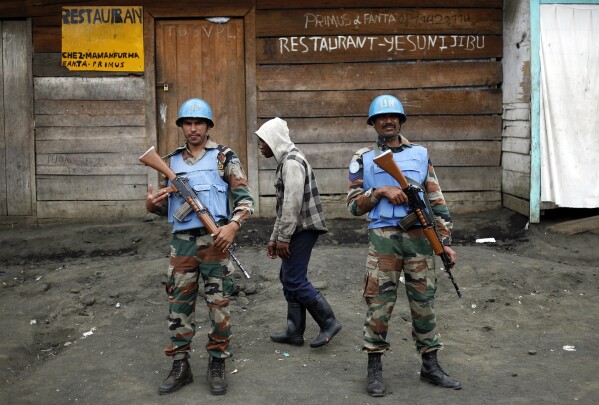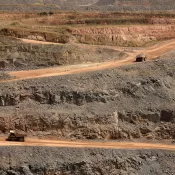
DR Congo crisis: Envoy restates the need of the Security Council paying attention to Rwanda’s concerns
Concerned about the constant ignoring of problems by the international community, the Rwandan government has emphasized once more how important it is that the UN Security Council take Rwanda’s security concerns seriously and concentrate on the underlying causes of the unending situation in eastern DR Congo in order to find a long-term solution to the conflict.
The UN Security Council unanimously passed a resolution on Friday denouncing the AFC/M23 rebels’ continuous attack and progress in the east of their nation, but it omitted any discussion of the core problems, such as the reality that the situation is still largely driven by a genocidal ideology and ambition.
As Kigali has frequently stated, the region is still seeing an increase in violent ethnic extremism, which mostly affects Congolese groups that speak Kinyarwanda. This condition was a contributing factor in the M23 insurrection years ago. According to President Paul Kagame, the DR Congo conflict is an ethnic war in which Rwanda is blamed for the repercussions while a segment of Congolese nationals are denied their rights.
Following their defeat of a sizable Congolese army coalition consisting of hundreds of European mercenaries, Rwandan genocidal militias known as the FDLR, Congolese ethnic militias known as the Wazalendo, Burundian armed forces, South African-led SADC forces, and UN peacekeepers, the rebels have been advancing across North and South Kivu provinces since January, liberating large areas of land. Remaining members of the masterminds of the 1994 Rwandan Genocide against the Tutsi established the FDLR, a terrorist group located in the Democratic Republic of the Congo. It intends to reenter Rwanda with force and carry out its homicidal program.
On January 27, the rebels took control of Goma, the capital of North Kivu Province, after intensive combat sparked by persistent violations of a ceasefire previously established by the Congolese armed forces (FARDC) in coalition. They then promptly proceeded to protect and maintain the situation and order in Goma.
On February 15, the rebels once again took control of the vital airport at Kavumu before heading south to seize the regional capital, Bukavu, while the security situation in South Kivu worsened due to reports of brutality, looting, and abuses spread by the Congolese army coalition. Prior to it, they were being urged to secure the entire city and go in as soon as possible.
People in North and South Kivu regions that are under rebel control are generally glad that the Congolese army coalition is not interfering with their tranquility.
Amb. Ernest Rwamucyo, Rwanda’s Permanent Representative to the UN, emphasized the necessity and significance of treating Rwanda’s security concerns seriously during a briefing on the DR Congo situation before the UN Security Council on Friday, February 21.
As long as there are security concerns from the Congolese army (FARDC) and its supporters, including the genocidal militia, Kigali has chosen to keep defensive measures in place along the border with the Democratic Republic of the Congo.
We think that any solution that fails to take Rwanda’s security concerns seriously would not provide a long-term solution to the conflict,” stated Rwamucyo.
“Rwanda is extremely concerned about the security threats posed by the FDLR and its fragments.”
The ambassador restated Kigali’s position that the Congolese government must answer for “its continued preservation of FDLR,” including integrating it into its army, arming it with advanced weaponry, and employing it as a fighting force and ally.
The ex-FAR, politicians, and Interahamwe militia members who had committed the genocide fled in large numbers, armed, to eastern DR Congo, then known as Zaire, as the Rwanda Patriotic Army seized control and put an end to the genocide against the Tutsi in July 1994.
Later, the remaining millitia and army of the overthrown murderous dictatorship united to form the Army for the Liberation of Rwanda (ALIR). They founded FDLR in 2000 to avoid or disassociate themselves from their heinous actions, shortly after the US government designated it as a terrorist group for killing US tourists in Uganda’s Bwindi Forest.
The FDLR was founded on May 1, 2000, when its founders assembled in a spacious hall in Lubumbashi, the second-largest city in the southeast of the Democratic Republic of the Congo, which is located along the Zambian border.
“Justifiable complaints of Congolese who speak Kinyarwanda”
“Any solution that disregards the justifiable complaints of the Congolese who speak Kinyarwanda, which are the primary reason M23 exists, will also not aid in the conflict’s resolution.”
Kigali has emphasized that, contrary to what Kinshasa would like the world to think, Rwanda’s “backing” is not the reason for M23’s comeback, but rather past oppression.
In 2021, the FDLR, more than 10,000 Burundian soldiers, 1,600 European mercenaries, and South Africa-led SADC forces joined the Congolese government army alliance to fight the M23 insurgents. M23 is now a member of the Alliance Fleuve Congo (AFC), a broader rebel group that was established in December 2023.
The AFC is pushing for government that protects all Congolese citizens, upholds fundamental human rights, and tackles the underlying causes of violence. Among other evils that are pervasive in the Democratic Republic of the Congo, its authorities have pledged to eradicate corruption, nepotism, tribalism, and the philosophy of genocide.
“Total quiet on the massive humanitarian abuses done in various sections” of DR Congo, such as the massacres, rapes, and [rights] breaches by CODECO, ADF, and other armed groups in Ituri, Beni, and South Kivu, as well as the UN’s concentration on M23, worried Rwanda,” the ambassador added.
He reaffirmed that Rwanda recognizes, wholeheartedly applauds, and is dedicated to the work of the Southern African Development Community (SADC), the East African Community (EAC), and the African Union.
As a follow-up to the results of the joint EAC-SADC Summit, EAC Chiefs of Defense convened in Nairobi, Kenya, on Friday, February 19, after the Security Council meeting on Wednesday.
The EAC and SADC joint chiefs of defense are expected to meet later on Monday, February 24, to develop a unified roadmap based on the recommendations of the joint summit held in Dar es Salaam. “Support these efforts and avoid being dragged into the risk of undermining regional efforts,” Kigali is urging the Security Council to do.
He remembered that the burning of foreign missions and embassies, as well as the mayhem on the streets of Kinshasa, were also mentioned in passing. “The DR Congo conflict is complicated and multifaceted, and the Council must address it comprehensively working with all partners and stakeholders involved,” Rwamucyo stated, adding that the Council cannot be selective in its condemnation.
Nearly 300 European mercenaries who had escaped the rebels’ onslaught on Goma last month turned themselves in and were granted safe passage back to their home countries via Rwanda.
Only Russia has denounced Western nations’ inaction about Kinshasa’s use of mercenaries to combat rebels in the country’s east.
All of us witnessed their surrender of arms to MONUSCO forces, and video of the ensuing movement of European mercenaries to Kigali was aired globally. Vassily Nebenzia, Russia’s Permanent Representative to the UN, stated during the UN Security Council’s extraordinary session on Wednesday that “we believe those events do not entirely correspond with how Russia views the UNSC’s mandate of the mission.”
However, Rwamucyo stated on Friday that Rwanda would “continue to meet its part of the bargain playing a constructive role for the sake of sustainable peace, security, and stability in our region” and that the country is still completely committed to regional measures aimed at achieving peace.
In accordance with the EAC-SADC proposals approved by the AU summit, Rwamucyo further urged DR Congo to lead the regional appeal, promptly resume the peace process, and pledge to engage in inclusive engagement with state and non-state actors (armed or not), including M23.
All Categories
Recent Posts
Tags
+13162306000
zoneyetu@yahoo.com


